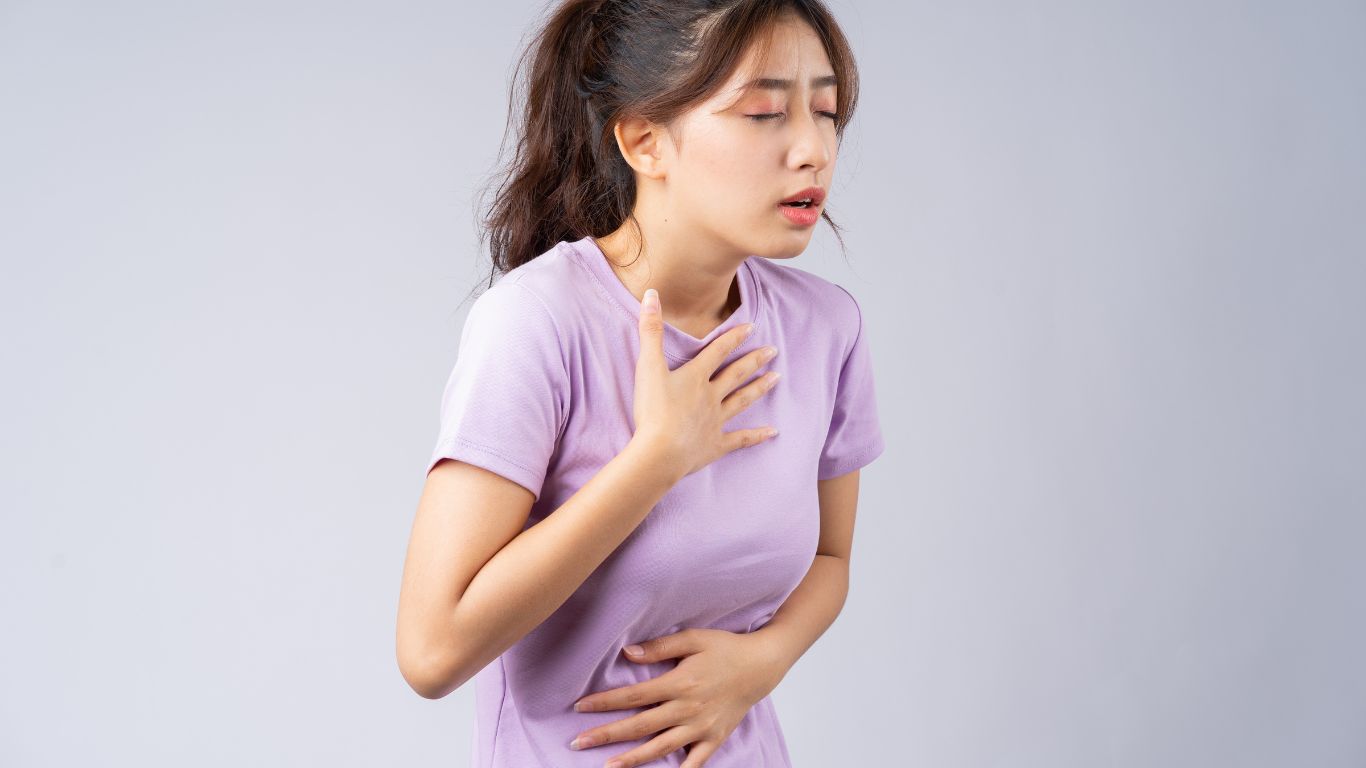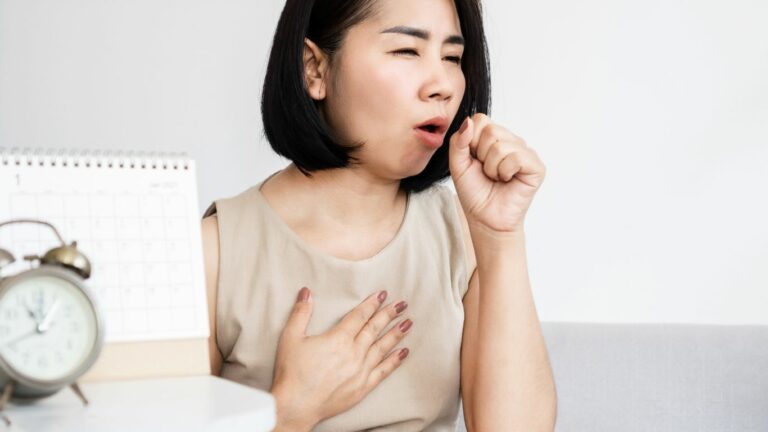Is Dry Mouth Linked to GERD? – A Comprehensive Guide
Experiencing dry mouth (xerostomia) and wondering if it’s linked to GERD? You’re not alone! Let’s dive into the relationship between GERD and dry mouth, explore why it happens, and how you can manage both conditions effectively.
GERD, or gastroesophageal reflux disease, is a chronic condition where stomach acid regularly backs up into the esophagus. While heartburn is the most common symptom of GERD, many people also experience other unexpected issues—like dry mouth. But is there a connection?
In this article, we’ll look at how GERD might contribute to dry mouth and what you can do about it.

What is GERD?
Before we dive into the dry mouth connection, let’s take a quick look at GERD itself. GERD occurs when the lower esophageal sphincter (LES), which acts like a valve between the stomach and the esophagus, doesn’t close properly. This allows stomach acid to flow back up (reflux) into the esophagus, causing irritation.
Symptoms of GERD include heartburn, regurgitation of food or sour liquid, chest pain, and difficulty swallowing. But the impacts go beyond that—GERD can also affect your oral health in surprising ways.

Why Does GERD Cause Dry Mouth?
Now, let’s connect the dots between GERD and dry mouth. There are a few reasons why GERD can lead to a dry mouth:
1. Stomach Acid Irritation
When stomach acid travels up into the mouth, it can irritate the salivary glands and interfere with their ability to produce saliva. This can lead to a reduction in saliva production, leaving your mouth feeling dry and uncomfortable.
2. Medications for GERD
Many GERD medications, especially proton pump inhibitors (PPIs) and H2 blockers, are known to have dry mouth as a side effect. These drugs reduce stomach acid production, which can help manage GERD symptoms, but they can also reduce the amount of saliva your body produces.
3. Breathing Through Your Mouth
Some GERD sufferers, especially those with severe cases, may experience nighttime reflux or sleep disturbances that cause them to breathe through their mouth during the night. Mouth breathing can dry out your mouth, especially if the air is dry in the room.
4. Dehydration from GERD Symptoms
Frequent heartburn and regurgitation can sometimes make people feel like they need to drink more fluids, but if GERD leads to nausea, it may make it harder for individuals to keep hydrated. Dehydration, in turn, can cause dry mouth.

How Does Dry Mouth Affect Your Health?
Dry mouth is more than just an uncomfortable feeling—it can lead to several oral health issues, including:
1. Tooth Decay
Saliva plays a crucial role in protecting your teeth by neutralizing acids and washing away food particles and bacteria. Without enough saliva, your teeth are more vulnerable to decay and cavities.
2. Gum Disease
Saliva also helps protect your gums from infection. A dry mouth increases the likelihood of plaque buildup, which can lead to gum disease (gingivitis) or periodontitis.
3. Difficulty Swallowing
Saliva helps with the process of swallowing, and without it, you may find it harder to eat and drink comfortably. This can lead to difficulty chewing and swallowing food.
4. Bad Breath
When your mouth is dry, bacteria in your mouth aren’t flushed away as effectively, leading to an increase in bad breath (halitosis).

Managing Dry Mouth When You Have GERD
If you’re dealing with both GERD and dry mouth, don’t worry. There are several ways to manage the symptoms of both conditions:
1. Stay Hydrated
Make sure you’re drinking enough water throughout the day. Hydration is key to keeping your mouth moist and preventing dryness. However, try not to drink too many sugary beverages or caffeinated drinks, as they can worsen GERD symptoms.
2. Use Saliva Substitutes
There are various over-the-counter saliva substitutes (like sprays or gels) that can help provide relief from dry mouth. These can help keep your mouth moist, especially when you’re sleeping or during the day when symptoms flare up.
3. Maintain a Healthy Diet
If you have GERD, certain foods (like spicy or acidic foods) can trigger symptoms. Similarly, a healthy diet can help alleviate dry mouth. Avoiding acidic, salty, or overly spicy foods can help both conditions. Soft, hydrating foods like soups, smoothies, and fruits can also soothe dry mouth.
4. Talk to Your Doctor About GERD Medications
If your GERD medications are causing dry mouth, discuss alternative treatments with your doctor. There are many options available, and your doctor may be able to adjust your medication to reduce side effects.
5. Practice Good Oral Hygiene
Good oral hygiene is essential when dealing with dry mouth. Brush your teeth at least twice a day, floss regularly, and use a mouthwash designed for dry mouth. This will help prevent cavities, gum disease, and other oral health problems associated with reduced saliva.
Conclusion
While dry mouth can be a frustrating side effect of GERD, understanding the link between the two and taking steps to manage both conditions can help you find relief. Staying hydrated, using saliva substitutes, and managing GERD symptoms are essential for maintaining good oral health. Don’t forget to talk to your healthcare provider if you’re struggling with dry mouth or GERD.
Appendices
Frequently Asked Questions (FAQs)
- Can GERD cause chronic dry mouth? Yes, GERD can contribute to dry mouth, especially when acid reflux reaches the mouth, or if medications for GERD cause reduced saliva production.
- Is dry mouth a common side effect of GERD medications? Yes, many GERD medications, like proton pump inhibitors (PPIs), can reduce saliva production, leading to dry mouth.
- How can I manage both GERD and dry mouth? Hydrate regularly, use saliva substitutes, and maintain a healthy diet while managing your GERD with proper medications and lifestyle changes.
- What oral health problems can arise from dry mouth? Dry mouth can lead to tooth decay, gum disease, bad breath, and difficulty swallowing.
- Is there a link between mouth breathing and GERD-related dry mouth? Yes, mouth breathing, often a result of nighttime GERD, can exacerbate dry mouth by drying out the oral cavity.
References
For further reading on dry mouth and GERD, check out the following resources:
- American Gastroenterological Association. (2023). Understanding GERD and Its Impact. Read Article
- National Institute of Dental and Craniofacial Research (NIDCR). (2023). Dry Mouth: Causes and Treatments. Read Article
- National Institute of Health (NIH). (2024). Medications and Dry Mouth. Read Article
Disclaimer: The information provided in this article is for educational purposes only and should not be considered a substitute for professional medical advice. Always consult your healthcare provider before making any changes to your diet or treatment plan.

Dr. Gwenna Aazee is a board-certified Internal Medicine Physician with a special focus on hypertension management, chronic disease prevention, and patient education. With years of experience in both clinical practice and medical writing, she’s passionate about turning evidence-based medicine into accessible, actionable advice. Through her work at Healthusias.com, Dr. Aazee empowers readers to take charge of their health with confidence and clarity. Off the clock, she enjoys deep dives into nutrition research, long walks with her rescue pup, and simplifying medical jargon one article at a time.






